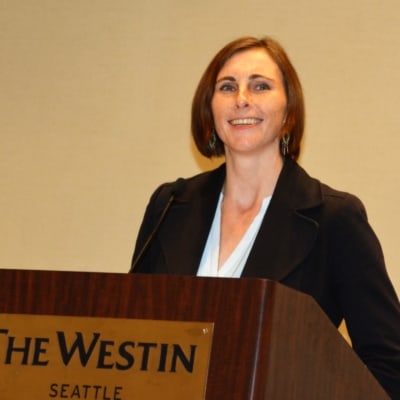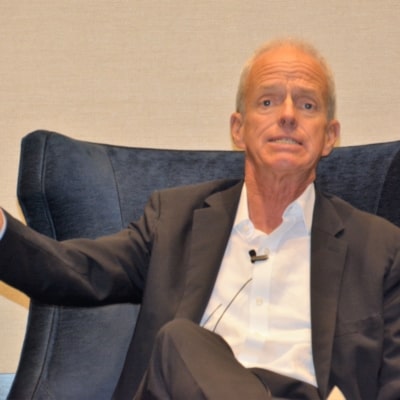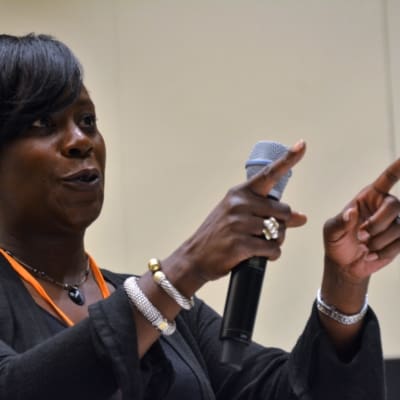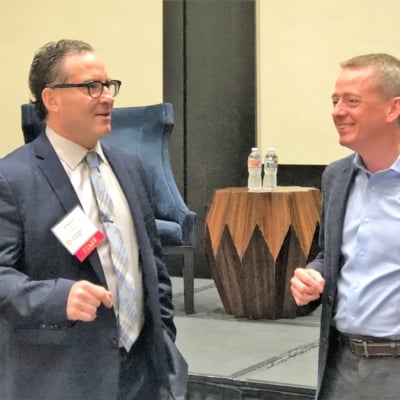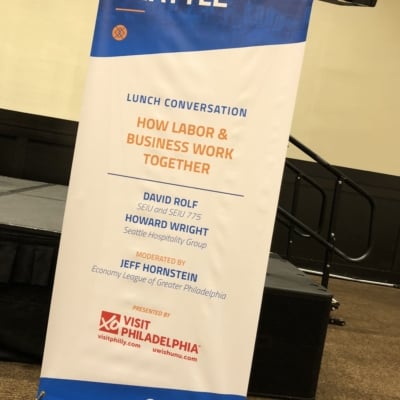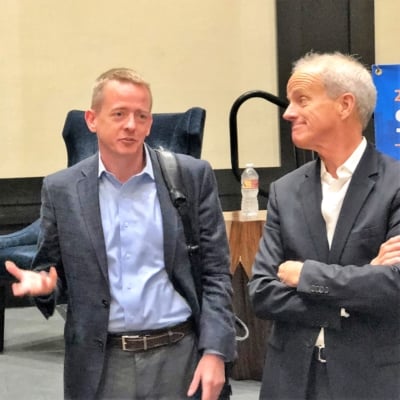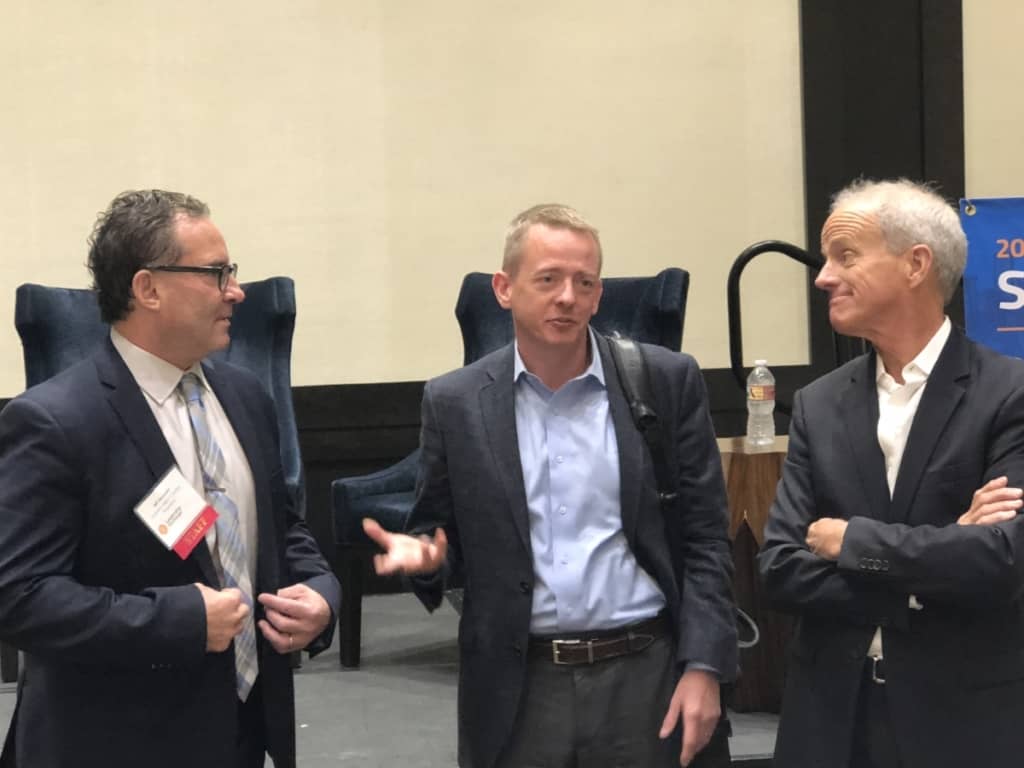
“A thriving middle class is good for America. It’s good for labor, it’s good for business, it’s good for government.”
Last week in Seattle, on Tuesday, October 2, 2018, Jeff Hornstein, the executive director of the Economy League of Greater Philadelphia, interviewed David Rolf, the founder and president emeritus of Washington’s SEIU 775 and the author of “The Fight for Fifteen: The Right Wage for a Working America,” and Howard Wright, the chairman and founder of the Seattle Hospitality Group, about how labor and business worked together to raise Seattle’s minimum wage to $15 an hour.
A former union organizer, Hornstein kicked off with a story about getting 3,000 janitors who clean every office building in Philadelphia ready to bargain. One of the workers said to him, “I’ve lived in my house for 40 years. I’ve seen my neighborhood decline. We have bars on our windows. We can’t let our grandkids play outside. Our neighborhood schools are terrible. Our kids have no jobs. Our grandkids have no future.” The worker asked, “What can the union do about that?”
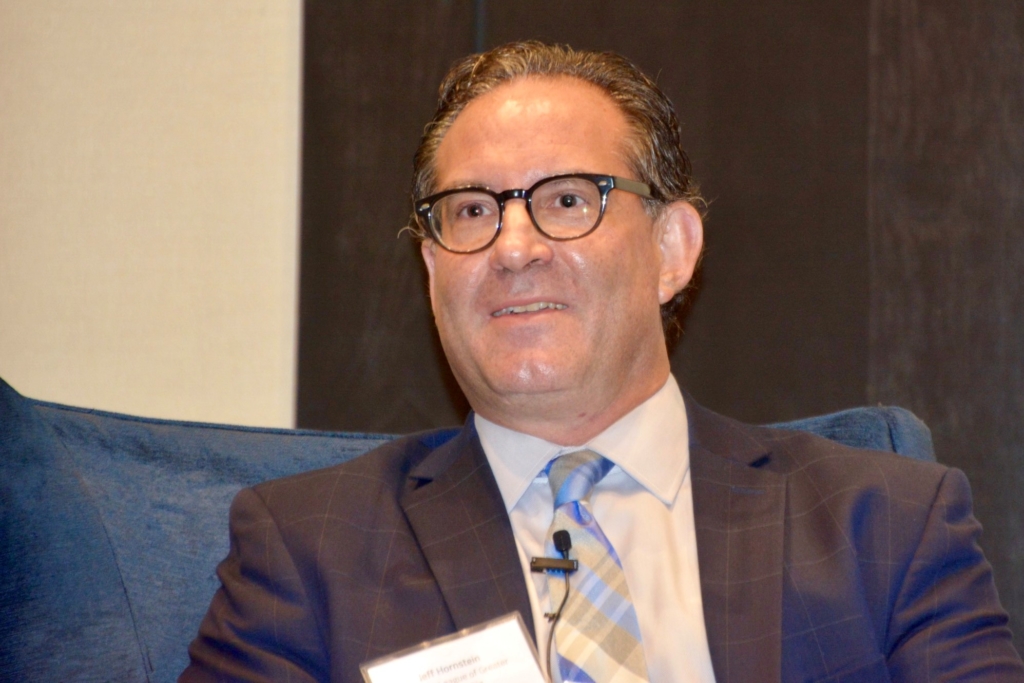
Hornstein said to the audience of 150 leaders from Philadelphia visiting Seattle to learn more about the most intractable issues facing our cities, “That’s why I am here.”
“Our capacity to change public policy matters.”
Getting to $15
The Economy League’s briefing book for the leadership exchange in Seattle, known as GPLEX, says, “Seattle is leading the way on creating a living wage. In 2015, the city passed a bill to gradually raise the minimum wage starting at $11. The current minimum wage is $13, and it’s set to increase to $15 by 2021. Two studies released in June 2017 offer opposite interpretations of whether the wage rise has benefited workers. One has suggested that few jobs were lost because of the increase, whereas the other showed that low-wage workers lost hours in exchange for the larger wage. Layered over this intervention is the already competitive job market in the city in which many workers already were earning more than $15 per hour.”
In Seattle, Hornstein says, a very broad-based center coalesced around the wage increase, with well-organized forces at the extremes of the political spectrum providing incentive for cooperation. The complex compromise phases in $15 an hour over a multi-year period, with different schedules according to industry and company size. As Wright noted, he and Rolf didn’t know each other when the process began, but soon realized they shared a fundamental conviction that America’s greatest asset is its middle class, an asset they believe is under threat like never before, and this has formed the basis of an enduring relationship.
The American system of government | labor relations was “built in hell” says @DavidMRolf. He says the question is whether it will be replaced with something or nothing. #Tools4Philly pic.twitter.com/7JsTdVbOpn
— Mebane Rash (@Mebane_Rash) October 2, 2018
Wright says, “I do believe in doing the right thing and taking care of people.” He asks who is going to pay for people who can’t afford housing, food. Government or employers? At what cost do you want to have pure labor efficiency? #Tools4Philly pic.twitter.com/3OkBR7j3bM
— Mebane Rash (@Mebane_Rash) October 2, 2018
Howard Wright told an owner of a restaurant, “If you can’t get from $9.75 to $15 in 7 years, you have a different problem.” #Tools4Philly pic.twitter.com/koUOgGuJfw
— Mebane Rash (@Mebane_Rash) October 2, 2018
Partnerships matter, says Wright. “The more you can get people in the same room at the same table face-to-face — I am a strong believer in that.” #Tools4Philly pic.twitter.com/VoBYdbVxIW
— Mebane Rash (@Mebane_Rash) October 2, 2018
“It’s about the people. We have to take care of our people.” @travelairman & @DavidMRolf care so deeply about the middle class & made $15 min wage happen in Seattle.
After hearing them, it seems so doable. Think Philly can get there? #GPLEX2018 #Tools4Philly
— Michelle Freeman (@micheemichee520) October 2, 2018
Rolf concluded, “Half of us now make less than $18 an hour and the average American cannot afford a one time expense of $1,000. That’s not a thriving middle class. I have always believed and I will always believe that a thriving middle class is good for America. It’s good for labor, it’s good for business, it’s good for government.”
Philadelphia’s Councilwoman Cherelle Parker asked, “Do you expect without a legislative push that the private sector will take the lead…and move overall for a private sector $15?” She followed up to Rolf, how do you get the private sector to the table and get to yes without regulation?
The same day, Amazon announced it would raise its minimum wage to $15.
@EconomyLeague was proud to host @travelairman and @DavidMRolf yesterday at #GPLEX2018 to tell the story of Seattle's path to $15 minimum wage. As Howard said "America's greatest asset is its middle class." Amen. #Tools4Philly https://t.co/Ocf8d1EGzs
— Jeff Hornstein (@jmhornstein) October 3, 2018
This issue is complicated, and on a regional exploration of Seattle’s Chinatown-International District, Rahul Gupta with the Wing Luke Museum shared how the increase in minimum wage caused “mom-and-pop” stores in the neighborhood to lay off workers.
Seattle’s story of how labor and business worked together and reach consensus on a minimum wage increase in Seattle helped leaders understand when to fight and when to partner, assess alignment, and think about the future of labor and business relationships in cities and states across the United States.
In Philadelphia, the mayor proposed raising the minimum wage to $15 an hour for city workers. The minimum wage bill has not yet passed, Hornstein says, but has been introduced as Bill 180846. It would phase the wage in from the current $12.20 minimum to $15 by July 1, 2023, and then index it to the consumer price index.
In my North Carolina, we were the first red state to increase the minimum wage to $15 an hour for state workers.
What is happening in your city or state on this issue? How do you see the relationship of labor and business changing now and in the future?
Weekly Insight Economic Development

